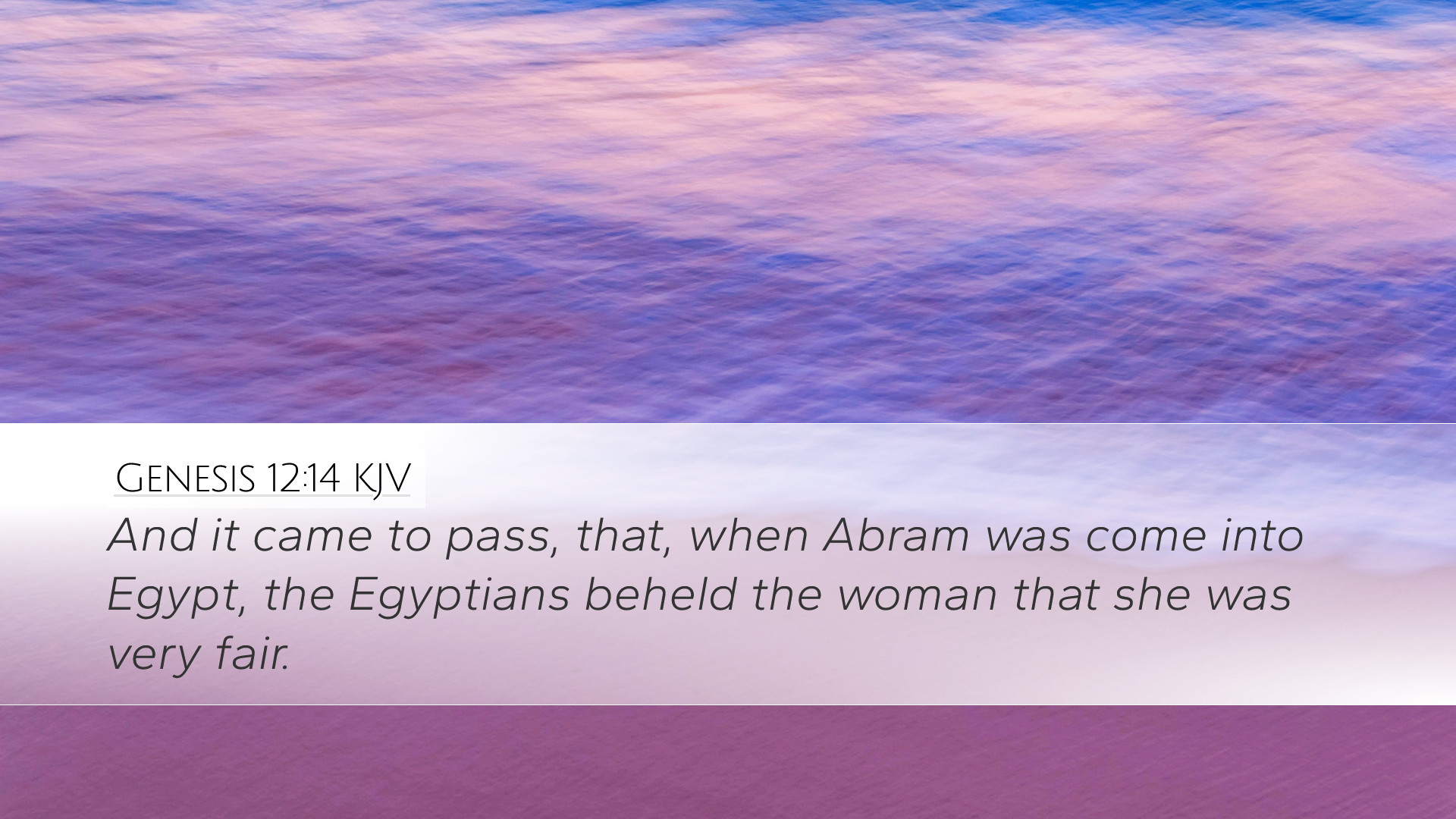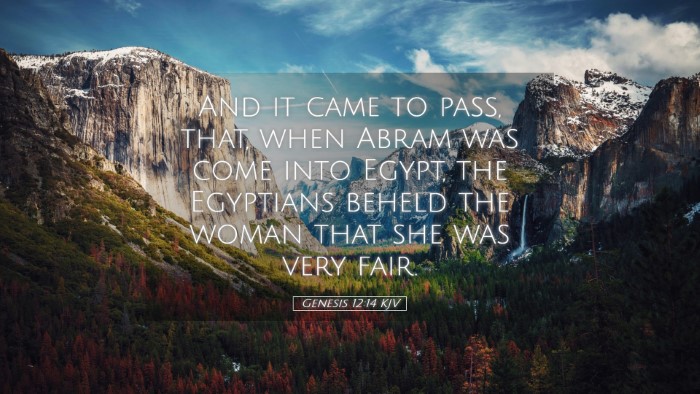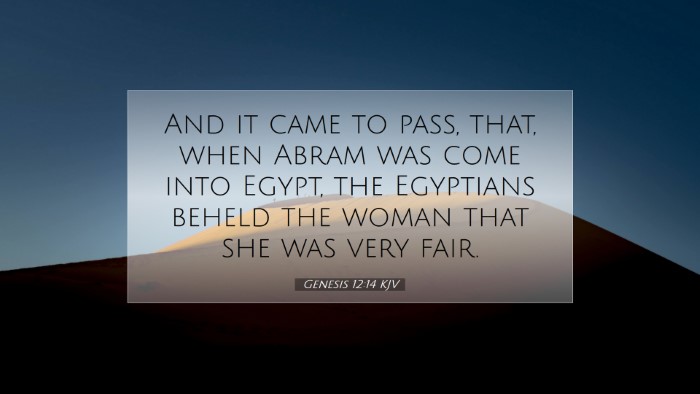Commentary on Genesis 12:14
Introduction
Genesis 12:14 describes a pivotal moment in the life of Abram (later Abraham) as he journeys into Egypt during a time of famine. This passage not only highlights Abram's faith and his interactions with his environment but also serves as a reflection on human nature, divine providence, and the complexities of faith.
Text of Genesis 12:14
"And it came to pass, that when Abram was come into Egypt, the Egyptians beheld the woman that she was very fair." (Genesis 12:14)
Overview of Abram's Journey
In the narrative leading to Genesis 12:14, we see God's call to Abram to leave his homeland for a land that He will show him. This journey is characterized by faith, yet it is also shadowed by fear, as Abram faces the uncertainties of a foreign land.
Insights from Matthew Henry
Observations on Abram's Vulnerability
Henry highlights Abram's recognition of his wife's beauty and the potential dangers it poses. He reflects on the dual nature of beauty, which can be a blessing and a source of temptation or conflict.
- Protection for Sari: Abram's intention to protect Sarai (his wife) by downplaying their relationship reflects a common human instinct to negotiate safety in uncertain situations.
- Human Weakness: Henry points to Abram's fear and the compromises he makes, which underscores human frailty even among the most faithful.
Insights from Adam Clarke
Clarke's Perspective on Divine Providence
Adam Clarke emphasizes God's overarching providence even in the midst of human failures. Despite Abram's actions, God's plan remains intact. Clarke notes that the Egyptians' admiration for Sarai can serve as a reminder of God's ability to protect His chosen ones.
- God's Guarding Hand: Clarke reflects on God's protective care in every circumstance, suggesting that even when human judgment falters, divine safeguarding persists.
- Lessons on Trust: This passage teaches the importance of trusting in God's promises, regardless of the immediate challenges one may face.
Insights from Albert Barnes
Barnes on Cultural Context
Albert Barnes provides insight into the cultural context of the time, emphasizing the significance of beauty in ancient Near Eastern society. He illustrates how such beauty often placed individuals in precarious positions.
- Societal Norms: Barnes comments on the societal expectations surrounding beauty and familial relationships, indicating that Sarai's beauty could naturally attract attention.
- Strategic Deception: He also explores the implications of Abram's decisions, portraying the rationale behind his actions as reflective of the surrounding culture’s values.
Theological Implications
The passage raises theological questions regarding God's protection versus human initiative. As scholars and theologians reflect on Abram’s journey into Egypt and subsequent actions, several themes arise:
- The Nature of Faith: The narrative prompts exploration into what it means to live by faith in unknown circumstances.
- Divine Sovereignty: The chapter illustrates the tension between divine sovereignty and human action, leading to discussions around predestination and free will.
- Understanding Fear: Fear is a powerful motivator, as evidenced by Abram's compromises, and this raises questions about the role of fear in the life of faith.
Application for Today’s Believers
The lessons derived from Genesis 12:14 are profound and immediate for contemporary believers:
- Trust in God's Plan: In times of uncertainty, believers are reminded to trust in the sovereignty and care of God.
- Assessing Our Actions: Believers are encouraged to evaluate the motivations behind their choices, especially when faced with fear or insecurity.
- Embracing Grace: This passage illustrates that even when we falter, God's grace provides a means of preservation and redemption.
Conclusion
Genesis 12:14 serves as a significant reminder of the complexities of faith and the divine parameters that govern it. Whether faced with challenges that provoke fear or in the pursuit of God's promises, the lives and experiences of figures like Abram encourage both humility and reliance on God's unwavering purpose.


